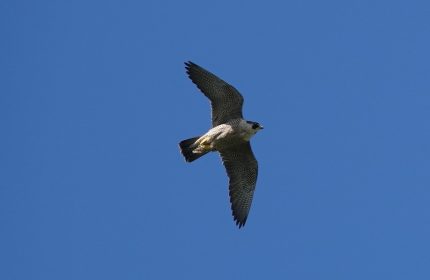A guide to winter feeding for garden birds
Winter is a challenging time for garden birds.
As temperatures drop and natural food sources become scarce, our feathered friends need a helping hand to survive the harsh conditions. Setting up winter feeding stations in your garden can make a significant difference, providing essential sustenance for these winged visitors. Here’s a guide to help you support and attract a variety of beautiful bird species to your garden during the colder months.
1. Choose the Right Feeders
Different bird species have different feeding habits. Invest in a variety of feeders to cater to a diverse range of birds. Common types include:
- Seed Feeders: Ideal for attracting species like finches, sparrows, and tits.
- Ground Feeders: Allows all birds easy access to food, including ground-feeding birds such as robins, house sparrows and wrens.
- Peanut Feeders: Attract birds such as woodpeckers and nuthatches.
- Suet Feeders: A high-energy option great for species like robins and tits.
- Mealworm Feeders: Attract insect-eating birds like robins, blackbirds and wrens.
 2. Select Nutrient-Rich Foods
2. Select Nutrient-Rich Foods
Offer a mix of high-quality bird foods to meet the diverse dietary needs of garden birds. Some popular choices include:
- Suet Treats: High-energy feed that’s perfect for winter feeding and loved by many species.
- Sunflower Hearts: Loved by all garden bird species.
- Niger Seeds: Great for attracting goldfinches, greenfinches, and siskins.
- Peanuts (unsalted): A favourite for many birds, including tits and great-spotted woodpeckers.
- Mealworms: A protein-rich option for insect-eating birds.
3. Provide Fresh Water
Water is as essential as food, especially during winter when natural water sources may freeze. Ensure you have a bird bath or a shallow container with fresh water. Break the ice regularly to allow birds to drink and bathe.
 4. Maintain Hygiene
4. Maintain Hygiene
Keep feeders clean to prevent the spread of diseases. Regularly clean feeders and bird baths with an animal-friendly disinfectant solution. Remove any mouldy or spoiled food promptly.
5. Feeder Placement and Considerations
Strategic placement of feeders ensures they are both visible to you and safe for the birds. Avoid placing feeders too close to windows to prevent collisions. Provide cover nearby by placing feeders near tall bushes and trees to allow birds to retreat from predators. Remember to keep feeders clean to avoid disease transmission.
6. Consider Seasonal Variations
Adjust your feeding routine based on seasonal changes. In extremely cold weather, birds need more energy to stay warm. Increase the number of high-energy foods like suet and peanuts. The cold weather increases birds’ appetites to stay warm, so regularly check on your feeders to ensure they stay full of food.
7. Be Patient
It might take some time for birds to discover your feeders. Be patient and consistent in your feeding routine. Once birds find a reliable food source, they are likely to return.
8. Educate Yourself on Local Birds
Learn about the bird species in your area and their specific dietary preferences. Some handy guides on British bird species will tell you everything you need about your garden visitors. This knowledge will help you tailor your feeding strategy to attract various birds.
Caring for your garden birds in winter is made effortlessly convenient with the help of Ivel Valley Bird Food. Their commitment to providing high-quality bird food ensures that you have access to a wide range of nourishing options for our feathered friends. From premium seed blends to suet treats homemade on their Bedfordshire farm, Ivel Valley Bird Food offers a variety of products tailored to meet the specific needs of UK birds during the colder months. Their selection of feeders, nest boxes and other accessories are designed to accommodate various bird species so you can create a bird-friendly environment in your garden. By choosing Ivel Valley Bird Food, you not only enhance the well-being of wild birds but also support a brand dedicated to promoting a thriving avian ecosystem.
Visit their website at https://www.ivelvalleybirdfood.co.uk to explore their range and elevate your winter bird feeding experience.
ADVERTORIAL




















